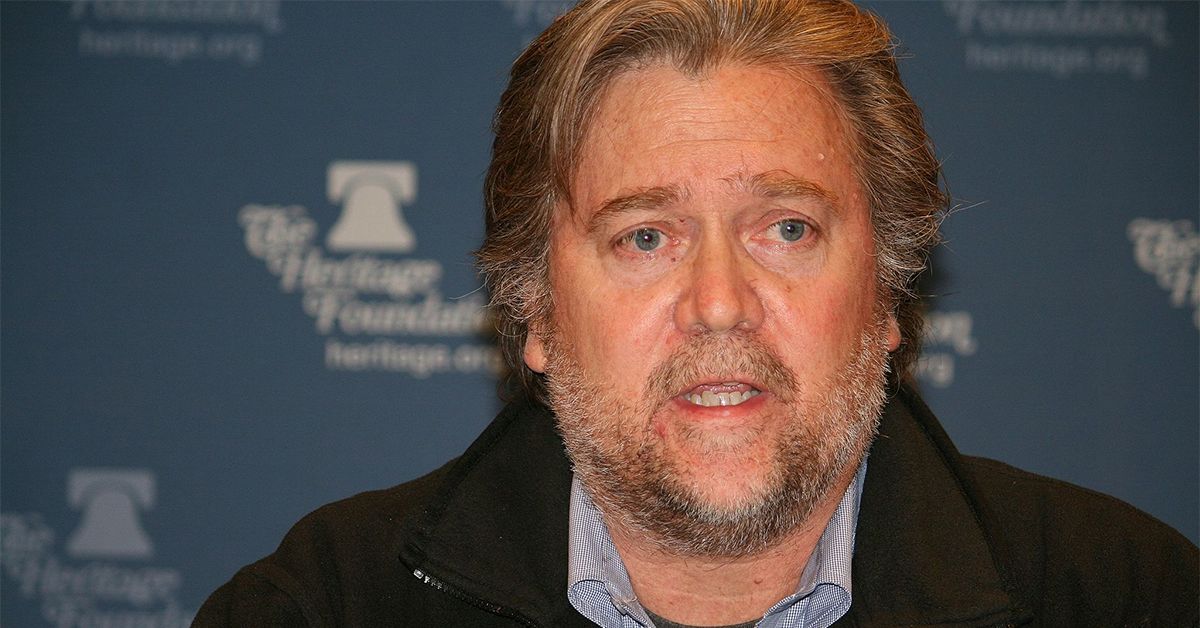Amid the outcry over a ban on asylum-seekers and immigrants during the last weekend of January 2017, news organizations reported on another major development: the restructuring of the National Security Council to make room for Steve Bannon, President Donald Trump's chief political strategist most recently of Breitbart.com. (Seats on the National Security Council are generally reserved for seasoned security experts, such as career diplomats and military generals).
The move came on Saturday, 28 January 2017, as much of the country was preoccupied by the executive order to restrict immigration from several specific countries (and the ensuing chaos in airports all around the globe). Word emerged that Trump had not only demoted the director of National Intelligence and the chairman of the Joint Chiefs of Staff, but also elevated Steve Bannon to the Principal's Committee — an unusual, if not unprecedented, decision.
From the presidential memorandum:
In addition to the NSC and HSC, there is also a single NSC staff within the Executive Office of the President that serves both the NSC and HSC. The staff is composed of regional, issue-focused, and functional directorates and headed by a single civilian Executive Secretary, pursuant to 50 U.S.C. 3021, who is also the Chief of Staff. All policy and staff activity decisions will be transmitted to the Executive Secretary for appropriate distribution and awareness. The purpose of the NSC staff is to advise me, the National Security Advisor, the Homeland Security Advisor, the NSC members, the HSC members, and others in the White House; to facilitate the implementation of Administration policy; and to help coordinate the national-security-related activities of the executive departments and agencies.
The role of the National Security Council is to advise the acting president on matters of (as its name suggests) national security. Bannon has little to no intelligence experience, although he did serve in the military. Before his role with the Trump administration, he worked as an investment banker, as a Hollywood producer and documentarian, and finally as the executive chairman of the controversial news site Breitbart.com, before finally joining up with the Trump administration.
Bannon's ascension came, as mentioned, with demotions:
The PC shall have as its regular attendees the Secretary of State, the Secretary of the Treasury, the Secretary of Defense, the Attorney General, the Secretary of Homeland Security, the Assistant to the President and Chief of Staff, the Assistant to the President and Chief Strategist, the National Security Advisor, and the Homeland Security Advisor. The Director of National Intelligence and the Chairman of the Joint Chiefs of Staff shall attend where issues pertaining to their responsibilities and expertise are to be discussed.
The move did not go unnoticed:
This is stone cold crazy. After a week of crazy. Who needs military advice or intell to make policy on ISIL, Syria, Afghanistan, DPRK? https://t.co/Mmyc139w3M
— Susan Rice (@AmbassadorRice) January 29, 2017
The National Security Council has been an agency that for years has been criticized for its role in extrajudicial killings, including those of Americans and foreign nationals. A 2010 editorial in Harpers magazine called the National Security Council part of a power grab for President Barack Obama:
As a wise observer wrote of the suspension of the habeas corpus right of Americans in 1777, tyranny comes “when liberty is nibbled away, for expedients, and by parts…. Now a line is drawn, which may be advanced further and further at pleasure, on the same arguments of mere expedience on which it was first described.” This process of steady erosion has long been under way in our country. When the executive claims the power to take the life of a citizen without recourse to law and legal process, and seeks to sustain that under vague claims of commander-in-chief authority, that claim is in its essence tyrannical.
However, because the NSC is not subject to the Freedom of Information Act, it is impossible to say specifically what it can or does authorize, by design. It is also unclear exactly what Bannon's role will be in policy decisions.
After waves of criticism, President Trump announced on 31 January 2017 that he would again be reorganizing the National Security Council Principals Committee, this time reinstating CIA director Mike Pompeo, who was confirmed in that role the week before.
